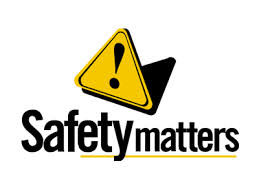Safely Operating Your Generator During Power Outages: Bergen County Edition
Safely Powering Your Generator During Power Outages: Bergen County’s Comprehensive Guide
These days no one gives a passing thought to the electrical work that goes on behind the scenes: flipping a switch to light up a room or turning on the television is just routine. However, the quality of your electrical system directly relates to the effect it will have on your living and working environments. Flickering lights, frequent brownouts or blackouts, faulty wiring—all of these problems can greatly diminish the value of your property, not to mention the quality of daily life. If you’re ready to invest in the best options available for superior service from your residential or commercial electrical wiring and infrastructure, contact the pros at Vaccarella Electrical Services, LLC!
NJ Residential Services
NJ Commercial Services
EV Charging Residential & Commercial
Electrical Service Upgrades
Home Standby Generators
Vaccarella Electrical Services Is Fully Licensed, Bonded, And Insured For Your Convenience And Peace Of Mind.
We have the experience and the tools to ensure you have the most current electrical services for your property, which will help you save on energy costs, improve the performance of your building, and more. From complete wiring of new construction to commercial and residential rewiring and beyond, our electricians in Hackensack are here to help your property be the best that it can be.
When you hire Vaccarella Electrical Services for your home, business & commercial electrical services, you can rest easy knowing were some of the most experienced electricians in town. No matter which member of our team comes to perform electrical services, electrical panel upgrade services, or generator installation for your property, you can rest assured that they have more than a decade of experience to put to work for you. Our professional residential, industrial, and commercial electricians are serious about providing Bergen County with superior workmanship and customer service.
were waiting for your call
201.966.0019
Vaccarella Electrical Services offers leading electric services and expertise for all your commercial, residential, EV charging, and generator needs in New Jersey. You can rely on the professionalism and experience of our electrical team. Already a trusted choice for thousands of businesses, facilities, residential homes, buildings, and commercial electrical properties.
Safely Operating Your Generator During Power Outages: Bergen County Edition
These days, electricity has become an essential part of our lives. We rely on it for almost everything, from lighting up our homes to powering our electronic devices. However, power outages can disrupt our daily routines and leave us in the dark. That’s where generators come in handy. They provide a temporary power source during outages, ensuring that essential appliances and devices keep running. If you live in Bergen County, it’s important to follow safety guidelines and best practices when operating generators. Here are some tips to keep in mind:
Proper Ventilation
One of the most crucial aspects of operating a generator safely is ensuring proper ventilation. Generators produce carbon monoxide, a colorless and odorless gas that can be deadly if inhaled in high concentrations. To prevent carbon monoxide poisoning, always place your generator outdoors in a well-ventilated area, away from doors, windows, and vents. Never operate a generator in an enclosed space, such as a garage or basement. It’s also important to install carbon monoxide detectors in your home to provide an early warning in case of a leak.
Fuel Storage
When it comes to fuel storage, safety should be a top priority. Store your generator fuel in approved containers in a cool, well-ventilated area, away from any potential sources of ignition. Make sure to label the containers properly and keep them out of reach of children. It’s also important to check the fuel levels regularly and refill as needed. Avoid overfilling the tank to prevent spills and fire hazards.
Electrical Connections
Proper electrical connections are essential for the safe operation of your generator. Before connecting your generator to your home’s electrical system, make sure to turn off the main circuit breaker to prevent backfeeding. Backfeeding occurs when electrical power from the generator flows back into the utility lines, posing a risk to utility workers and potentially damaging your generator. It’s recommended to hire a licensed electrician to install a transfer switch, which allows you to safely connect your generator to your home’s electrical system.
Vaccarella Electrical Services: Your Trusted Electrical Experts in Bergen County
When it comes to electrical services in Bergen County, Vaccarella Electrical Services is the name you can trust. With years of experience and a team of highly skilled electricians, we provide superior service for all your residential and commercial electrical needs. From complete wiring installations to electrical service upgrades and generator installations, we have the expertise to ensure your property’s electrical system is safe and efficient.
As a fully licensed, bonded, and insured company, we prioritize your safety and peace of mind. Our electricians are committed to delivering top-notch workmanship and exceptional customer service. Whether you need electrical services for your home, business, or EV charging needs, you can rely on Vaccarella Electrical Services to get the job done right.
Don’t let power outages disrupt your life. Contact Vaccarella Electrical Services today at 201.966.0019 for reliable and professional electrical services in Bergen County. Trust us to keep your lights on and your property powered, even during the darkest times.
Q1: How should I properly ventilate my generator during operation?
A1: It is important to place your generator in a well-ventilated area, preferably outdoors, to prevent the buildup of carbon monoxide. Keep it at least 20 feet away from windows, doors, and vents to ensure proper airflow.
Q2: What are the best practices for fuel storage when operating a generator?
A2: Store fuel in approved containers in a cool, well-ventilated area away from any heat sources or open flames. It is recommended to use fuel stabilizers to prolong the shelf life of the fuel.
Q3: How should I make electrical connections to my generator?
A3: Use heavy-duty extension cords specifically designed for outdoor use and rated for the wattage of your generator. Avoid overloading the cords and ensure they are in good condition without any frays or damage.
Q4: Can I connect my generator directly to my home’s electrical system?
A4: It is highly recommended to use a transfer switch installed by a licensed electrician to connect your generator to your home’s electrical system. This ensures the safety of utility workers and prevents backfeeding, which can be dangerous.
Q5: Are there any additional safety guidelines I should follow when operating a generator?
A5: Always read and follow the manufacturer’s instructions for your specific generator model. Never operate a generator indoors or in enclosed spaces. Regularly inspect and maintain your generator to ensure it is in good working condition.
Share Safety Guidelines and Best Practices for Operating Generators During Power Outages in Bergen County
When a power outage occurs in Bergen County, it is important to have a generator on hand to provide temporary electricity. However, operating a generator safely is crucial to avoid accidents and ensure the well-being of everyone in the vicinity. Here are some important safety guidelines and best practices to follow when using a generator during a power outage:
1. Proper Ventilation: Generators emit carbon monoxide, a colorless and odorless gas that can be extremely dangerous if inhaled in high concentrations. To prevent carbon monoxide poisoning, always operate your generator outdoors in a well-ventilated area, away from doors, windows, and vents. Never use a generator inside your home, garage, or any enclosed space.
2. Fuel Storage: Store generator fuel in a safe and secure location, away from any sources of heat or open flames. Use approved containers specifically designed for fuel storage and make sure they are properly labeled. Avoid overfilling fuel tanks and always turn off the generator and allow it to cool down before refueling.
3. Electrical Connections: Before connecting your generator to your home’s electrical system, make sure to turn off the main circuit breaker or disconnect the main power source. Use a transfer switch installed by a licensed electrician to safely connect the generator to your home’s electrical panel. This will prevent backfeeding, which can be dangerous for utility workers and damage your generator.
4. Grounding: Properly ground your generator to prevent electrical shock and ensure safe operation. Follow the manufacturer’s instructions for grounding or consult a licensed electrician for assistance.
5. Maintenance: Regularly inspect and maintain your generator to ensure its proper functioning. Check the oil and fuel levels, clean or replace air filters, and test the generator periodically to ensure it starts and runs smoothly.
By following these safety guidelines and best practices, you can safely operate your generator during power outages in Bergen County. Remember, if you are unsure about any aspect of generator operation or installation, it is always best to consult a licensed electrician for assistance. Stay safe and prepared during power outages with a properly operated generator.
Benefits of Owning a Generator:
1. Power during outages: The primary benefit of owning a generator is having a backup power source during power outages. This ensures that essential appliances and devices can continue to function, providing comfort and convenience during emergencies.
2. Safety and security: A generator can help maintain security systems, including alarms and surveillance cameras, during power outages. This ensures the safety of your property and loved ones.
3. Business continuity: For businesses, a generator can prevent downtime and financial losses during power outages. It allows essential equipment and systems to continue operating, minimizing disruptions and maintaining productivity.
4. Medical equipment support: If you or a family member relies on medical equipment that requires electricity, a generator can be a lifesaver. It ensures that critical medical devices, such as oxygen concentrators or refrigerators for medication, remain functional during power outages.
5. Comfort during extreme weather: A generator can power heating or cooling systems, fans, and lights during extreme weather conditions. This helps maintain a comfortable living environment, especially during heat waves or cold spells.
Safety Guidelines and Best Practices for Operating Generators during Power Outages in Bergen County:
1. Proper ventilation: Generators produce carbon monoxide, a colorless and odorless gas that can be deadly if inhaled. Always operate generators outdoors in a well-ventilated area, away from doors, windows, and vents. Never use a generator inside a home, garage, or enclosed space.
2. Fuel storage: Store generator fuel in approved containers in a cool, well-ventilated area, away from living spaces and potential ignition sources. Follow local regulations for fuel storage and ensure proper labeling of containers.
3. Electrical connections: Before connecting appliances or devices to the generator, make sure the generator is turned off. Use heavy-duty extension cords designed for outdoor use and ensure they are in good condition. Avoid overloading the generator by calculating the total wattage of connected devices.
4. Grounding: Follow the manufacturer’s instructions for proper grounding of the generator. This helps prevent electrical shocks and protects against electrical faults.
5. Maintenance and inspections: Regularly inspect and maintain the generator according to the manufacturer’s guidelines. This includes checking fuel levels, oil levels, and cleaning or replacing air filters. If any issues arise, contact a qualified electrician or generator technician for repairs.
6. Fire safety: Keep flammable materials away from the generator and ensure it is placed on a non-combustible surface. Have a fire extinguisher nearby and know how to use it.
7. Noise considerations: Generators can be noisy, so be considerate of your neighbors. Follow local noise regulations and consider using noise-reducing measures, such as soundproof enclosures or placement away from residential areas.
By following these safety guidelines and best practices, you can ensure the safe and efficient operation of your generator during power outages in Bergen County.
To inquire about our services and to receive safety guidelines and best practices for operating generators during power outages in Bergen County, please contact Vaccarella Electrical Services at:
Phone: 201.966.0019
Our team of experienced electricians is ready to assist you with all your electrical needs, including residential and commercial services, EV charging installation, electrical service upgrades, and home standby generators. We are fully licensed, bonded, and insured for your convenience and peace of mind.
At Vaccarella Electrical Services, we prioritize customer satisfaction and strive to provide superior workmanship and customer service. With over a decade of experience, our team is dedicated to ensuring your property has the most current electrical services, helping you save on energy costs and improving the performance of your building.
Contact us today to learn more about our services and to receive the necessary safety guidelines and best practices for operating generators during power outages in Bergen County. We proudly serve many areas in Bergen County and several others across New Jersey.
Safely Powering Your Generator During Power Outages: Bergen County’s Comprehensive Guide















